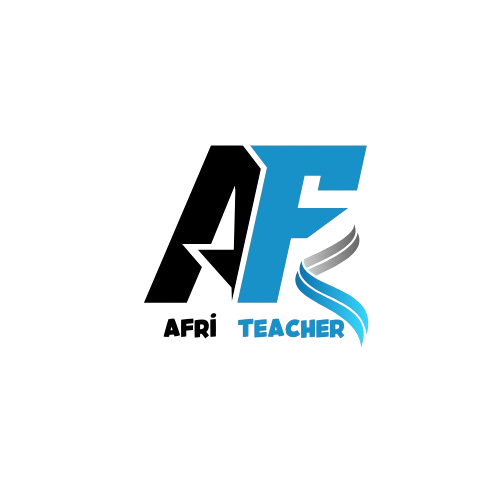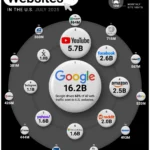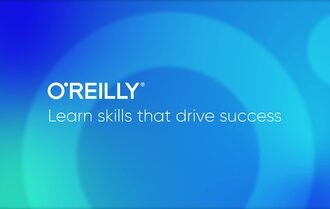Unlock Your Potential: Why Python is Your Smartest Career Move in 2024
Welcome, aspiring coders and future innovators! Are you standing at the crossroads of a new career path, a personal development goal, or simply a burning curiosity to understand the digital world around you? If so, you’ve landed in the perfect place. In an era dominated by artificial intelligence, data science, and automation, learning Python isn’t just an advantage; it’s rapidly becoming a fundamental skill, a digital lingua franca that opens doors to countless opportunities. And the best part? Thanks to the explosion of online learning platforms and online education learning, mastering Python has never been more accessible, even for absolute beginners.
This comprehensive guide is meticulously designed for you – the individual with little to no prior coding experience, ready to embark on an exciting journey into programming. We’ll cut through the noise, review the top-tier Python learning online courses available in 2024, and provide you with actionable insights to kickstart your coding adventure. From free resources to premium, career-focused specializations, we’ve got your back.
Why Python, and why now? Python’s elegant syntax, vast libraries, and incredibly supportive community make it the best online learning platform language for beginners. It’s the backbone of everything from web development with Django and Flask to complex machine learning algorithms, and the go-to language for data analysis, automation, and even game development. The demand for Python developers continues to skyrocket across industries, ensuring that your investment in learning Python today translates into tangible career benefits tomorrow. In 2024, if you’re looking to enhance your professional toolkit or pivot into a tech role, Python is your golden ticket.
The Digital Renaissance: Embracing Online Learning in a Hybrid World
The landscape of education has undergone a revolutionary transformation, with online learning courses emerging as the cornerstone of continuous professional development and personal growth. Gone are the days when traditional classroom settings were the only path to acquiring new skills. Today, online learning offers unparalleled flexibility, accessibility, and often, affordability.
The Irrefutable Benefits of Online Learning
For absolute beginners, online learning presents a unique set of advantages:
- Flexibility and Convenience: Learn at your own pace, on your own schedule. This is particularly beneficial for those balancing work, family, or other commitments. Whether it’s
my online learningjourney after hours or integratinglearning online QLD Healthinto a busy professional life,online learning platformscater to every need. - Global Access to Expertise: You’re no longer limited by geographical boundaries. The best instructors and universities from around the globe are now available at your fingertips, via platforms like
Coursera,edX, andLinkedIn Learning. - Cost-Effectiveness: Often,
free online coursesor more affordable options compared to traditional education makeonline education learninga highly attractive proposition. Even premium platforms provide excellent value for money, a critical consideration when exploringonline courses Australiaor anywhere else. - Personalized Learning Paths: Many
online learning platformsleverage adaptive technologies to tailor content to your learning style and progress, ensuring a more effective and engaging experience. - Diverse Course Offerings: From
language learning onlinetocpa online learning, the breadth ofonline learning programsis astounding. This diversity ensures that whether your goal is to masterEnglish learning onlineor delve intodeep learning, there’s a tailored course for you.
The shift towards blended learning and fully remote online learning systems has not only proven its efficacy but also solidified its place as a permanent fixture in modern education. Companies like Google, Meta, and IBM are increasingly recognizing and even creating their own certifications through online learning platforms, validating the skills gained in this digital environment.
Charting Your Course: What to Look for in a Beginner Python Program
Choosing the right Python learning online course can feel overwhelming given the sheer volume of options. To ensure your learning Python journey is effective and enjoyable, here are the critical factors absolute beginners should consider:
1. Comprehensive Curriculum and Foundational Focus
A great beginner course should start with the absolute basics:
- Syntax and Variables: Understanding the building blocks of Python.
- Data Structures: Lists, dictionaries, tuples, sets – how to store and organize data.
- Control Flow: If/else statements, loops (for and while) for logical operations.
- Functions: Writing reusable blocks of code.
- Object-Oriented Programming (OOP) Concepts: A gentle introduction to classes and objects.
- Error Handling: Learning to debug and fix common issues.
- Modules and Packages: How to use existing Python tools.
Avoid courses that jump straight into advanced topics like machine learning or web development without solidifying these fundamentals.
2. Hands-On Projects and Practical Application
Theory is good, but practice is paramount. Look for courses that include:
- Coding Exercises: Short, focused challenges to reinforce concepts.
- Mini-Projects: Building small applications (e.g., a calculator, a simple game, a text-based adventure).
- Real-World Scenarios: Applying Python to solve practical problems.
A course heavy onlearning gamesorlearning games onlinecan also be a fun and engaging way to solidify concepts.
3. Instructor Quality and Engagement
The instructor can make or break your my online learning experience. Look for:
- Clear Explanations: The ability to simplify complex concepts.
- Enthusiasm and Passion: An instructor who makes learning exciting.
- Responsiveness: Support for questions and difficulties, often through forums or Q&A sections.
- Industry Experience: Insights from professionals who use Python daily.
4. Community and Support Systems
Learning to code can be challenging. A supportive community can be a lifeline:
- Discussion Forums: Platforms where you can ask questions and interact with peers and instructors.
- Discord Channels/Slack Groups: Real-time communication for quick help.
- Peer Review: Opportunities to review others’ code and receive feedback on your own.
This communal aspect significantly enhances thebenefits of online learning.
5. Platform Reputation and Reliability
Opt for well-established online learning platforms known for their quality content and user experience:
- Coursera: University-backed specializations and professional certificates.
- edX: Similar to Coursera, offering courses from top institutions.
- Udemy: A vast marketplace with courses from independent instructors.
- Codecademy: Interactive, hands-on learning with immediate feedback.
- LinkedIn Learning: Business-focused with excellent instructors, often included with
LinkedIn Learningsubscriptions. - FreeCodeCamp: High-quality
free online learningresources with certifications.
6. Pricing and Value Proposition
Consider your budget and the course’s overall value:
- Free Online Learning: Excellent starting points, but may lack depth or direct support.
- Subscription Models:
Codecademy,DataCamp,LinkedIn Learningoffer monthly/annual access to their entire library. - One-Time Purchase:
Udemycourses are often bought individually, with frequent sales. - Financial Aid:
CourseraandedXoffer financial aid for many programs.
7. Up-to-Date Content (Python 3)
Ensure the course teaches Python 3, as Python 2 is officially deprecated. All recommendations in this guide focus on Python 3.
By meticulously evaluating these criteria, you’ll be well-equipped to select the ideal python learning online course that aligns with your individual learning style and career aspirations in 2024.
Top Picks: The Best Python Learning Online Courses for Absolute Beginners in 2024
We’ve scoured the digital landscape to bring you the crème de la crème of Python learning online courses, tailored specifically for those starting from scratch. Each recommendation below represents a stellar option for building a robust foundational understanding of Python.
1. Coursera: Python for Everybody Specialization (University of Michigan)
Without a doubt, this is the gold standard for absolute beginners seeking a comprehensive and academically rigorous introduction to Python. Taught by Dr. Charles Severance (Dr. Chuck), this specialization is renowned for its clear explanations, engaging teaching style, and practical approach.
- Platform: Coursera (Part of the Google Career Certificates initiative, often includes financial aid options).
- Key Features:
- 5-Course Specialization: Covers Python Basics, Python Data Structures, Using Python to Access Web Data, Using Databases with Python, and Capstone Project.
- University Certification: Earn a shareable certificate from the University of Michigan, highly valued in the job market.
- Interactive Exercises: Plenty of coding challenges to solidify understanding.
- Practical Applications: Focuses on using Python for data manipulation, web scraping, and database interaction.
- Strong Community: Active discussion forums for support.
- Pros:
- Excellent instructor for beginners.
- Very comprehensive, building skills step-by-step.
- Strong emphasis on practical skills, preparing you for real-world tasks.
- Reputable certification enhances career prospects.
Free online learningaudit option for most course content, or financial aid for certificate.
- Cons:
- Can be a time commitment (approx. 8 months at 3 hours/week).
- Requires motivation to complete the entire specialization.
- Target Audience: Absolute beginners looking for a thorough, university-grade introduction to Python with a focus on data and web applications. Ideal for those aiming for roles in data analysis or automation.
- Pricing: Subscription-based for certificate access (Coursera Plus or individual course subscription), with financial aid available.
- Source Link: Coursera Python for Everybody Specialization
2. edX: Introduction to Computer Science and Programming Using Python (MITx)
This course is an intense, intellectually stimulating deep dive into computational thinking and problem-solving using Python, offered by one of the world’s leading technological institutions, MIT. It’s more challenging but incredibly rewarding.
- Platform: edX
- Key Features:
- MIT-Level Education: Taught by MIT professors, focusing on fundamental computer science principles.
- Problem-Solving Emphasis: Teaches how to think like a programmer to solve complex problems.
- Rigorous Curriculum: Covers Python 3, computation, algorithms, data structures, and basic software engineering.
- Prepares for Advanced Topics: Lays a strong foundation for future study in
deep learning,machine learning, andAI courses online free.
- Pros:
- Exceptional quality content from a top university.
- Develops strong computational thinking skills.
- Highly respected credential.
Free online learningaudit track available.
- Cons:
- More challenging and fast-paced than some other beginner courses.
- Requires a significant time commitment and self-discipline.
- Target Audience: Ambitious absolute beginners who want a rigorous, university-level introduction to computer science through Python. Ideal for those considering a career in software engineering or research.
- Pricing:
Free online learningaudit track, or verified track for a fee. - Source Link: edX MITx Introduction to Computer Science and Programming Using Python
3. Codecademy: Learn Python 3

For those who thrive on interactive, hands-on learning with immediate feedback, Codecademy’s “Learn Python 3” is an unparalleled choice. It’s designed to get you coding from day one, directly in your browser.
- Platform: Codecademy (a leading
online learning platform) - Key Features:
- Interactive Learning Environment: Write code directly in the browser, receive instant feedback.
- Project-Based Learning: Builds knowledge through small, guided projects.
- Foundational Skills: Covers core Python 3 syntax, control flow, functions, data types, and more.
- Career Paths: Integrates into broader
online learning programslike “Data Scientist” or “Web Developer” paths.
- Pros:
- Excellent for kinesthetic learners and those who want to “learn by doing.”
- Instant feedback accelerates the learning process.
- Engaging and less intimidating for complete novices.
- Pathways encourage continued learning into specific career tracks.
- Cons:
- Free version is limited; Pro subscription unlocks full content and projects.
- May not delve as deeply into theoretical computer science as university courses.
- Target Audience: Absolute beginners who prefer an interactive, hands-on approach and want to quickly start writing functional code. Perfect for those who feel intimidated by traditional lecture formats.
- Pricing: Basic access is free; Pro subscription for full content.
- Source Link: Codecademy Learn Python 3
4. Udemy: 100 Days of Code – The Complete Python Pro Bootcamp for 2024 (Dr. Angela Yu)
If you’re looking for a structured, project-intensive bootcamp experience that promises to take you from zero to Python developer, Dr. Angela Yu’s course on Udemy is a phenomenal option. It’s updated annually, making it highly relevant for 2024.
- Platform: Udemy
- Key Features:
- Project-Based Learning: Build one project every day for 100 days, covering a vast array of topics.
- Comprehensive: Goes from fundamental Python syntax to advanced topics like web development (Flask), data science, game development, and
machine learningbasics. - Engaging Instructor: Dr. Yu is known for her clear, energetic, and supportive teaching style.
- Discord Community: Access to a lively community for support and collaboration.
- Pros:
- Highly practical, focusing on building a diverse project portfolio.
- Keeps you motivated with daily challenges.
- Excellent value for a one-time purchase, especially during Udemy sales.
- Regularly updated for the latest Python versions and industry trends.
- Cons:
- Requires significant daily commitment for 100 days.
- Some might find the pace intense.
- Udemy certificates hold less weight than university ones, but the skills gained are very real.
- Target Audience: Highly motivated absolute beginners who want a structured, daily challenge to become proficient in Python across various domains. Ideal for those looking to build a strong project portfolio.
- Pricing: One-time purchase, often heavily discounted.
- Source Link: Udemy 100 Days of Code – The Complete Python Pro Bootcamp for 2024
5. Google’s Python Class (Free)
For a solid, no-frills, free online learning resource created by Google engineers, this offering is fantastic. It’s a pragmatic crash course designed for people with a little programming experience who want to learn Python, but it’s still accessible for absolute beginners who are determined.
- Platform: Google Developers
- Key Features:
- Video Lectures: Well-produced videos explaining core concepts.
- Textual Materials: Accompanying written notes for review.
- Coding Exercises: Practical exercises with solutions to practice.
- Focus on Core Python: Covers lists, strings, and the first part covers regular expressions. The second part deals with some advanced topics.
- Pros:
- Completely
free online learningexperience. - High-quality content from Google.
- Excellent supplement to other courses or for self-starters.
- Practical examples relevant to real-world software development.
- Completely
- Cons:
- Not as interactive or guided as dedicated
online learning platforms. - Lacks community support or certification.
- Might feel less structured than a full course.
- Not as interactive or guided as dedicated
- Target Audience: Self-motivated absolute beginners who prefer learning through a combination of videos and written exercises, and value high-quality,
free online learningcontent. - Pricing: Free.
- Source Link: Google’s Python Class
6. LinkedIn Learning: Python Essential Training
LinkedIn Learning, formerly Lynda.com, offers high-quality, professionally produced courses that are often included with a LinkedIn Learning subscription. This course is perfect for beginners who want a polished, business-oriented introduction.
- Platform: LinkedIn Learning
- Key Features:
- Professional Instructors: Taught by experienced industry professionals.
- Modular Learning: Broken down into digestible video lessons.
- Practical Examples: Focuses on applying Python to solve common business and data problems.
- Quiz & Exercise Files: To test understanding and practice code.
- Certificate of Completion: Adds a credential to your LinkedIn profile.
- Pros:
- Excellent production quality and clear explanations.
- Integrates well with
LinkedIn Learningecosystem, enhancing professional profile. - Good for learners who prefer video-based instruction.
- Often available through corporate subscriptions or
free online learningtrials.
- Cons:
- Requires a
LinkedIn Learningsubscription (though trials are available). - May not be as project-heavy as some other options.
- Requires a
- Target Audience: Absolute beginners, especially those with a business or professional background, looking for a polished, structured introduction to Python that enhances their
my online learningprofessional credentials. - Pricing: Subscription-based.
- Source Link: LinkedIn Learning Python Essential Training
7. FreeCodeCamp: Scientific Computing with Python
For those with an eye towards data science, machine learning, and scientific applications, FreeCodeCamp offers a fantastic free online learning pathway that includes a strong Python foundation.
- Platform: FreeCodeCamp (a popular
free online learning platform) - Key Features:
- Interactive Lessons & Projects: Learn Python basics through interactive coding challenges and build substantial projects.
- Scientific Computing Focus: Geared towards using Python for data analysis, numerical computing, and visualization.
- Certification: Earn a free certification upon completion of all projects.
- Community: Active forum and Discord server for support.
- Pros:
- Completely
free online learningexperience with certification. - Strong focus on practical, real-world projects relevant to data science.
- Excellent preparation for future
machine learningordeep learningstudies. - Supportive global community.
- Completely
- Cons:
- Might be less engaging for those not specifically interested in scientific computing.
- Relies heavily on self-motivation.
- Target Audience: Absolute beginners interested in Python for data science,
machine learning, and scientific applications. Those looking forfree online courseswith recognized certifications. - Pricing: Free.
- Source Link: FreeCodeCamp Scientific Computing with Python
8. DataCamp: Introduction to Python
DataCamp specializes in data science and analytics education, and their Introduction to Python course is a highly interactive and beginner-friendly way to learn Python with a data focus.
- Platform: DataCamp
- Key Features:
- Interactive Code Editor: Practice Python directly in the browser with instant feedback.
- Data-Centric: Focuses on using Python for data manipulation, visualization, and basic data analysis from the start.
- Gamified Learning: Encourages progress through points and badges.
- Extensive Library: Part of a larger library of
online learning coursesfor data professionals.
- Pros:
- Excellent for visual and interactive learners interested in data.
- Immediately applicable skills for data analysis.
- Clear, concise explanations.
- First chapter often
free online learningto try out.
- Cons:
- Subscription-based for full access.
- Specific focus on data might not appeal to those interested in general software development.
- Target Audience: Absolute beginners with an interest in data science,
machine learning, or analytics. Those who enjoy interactive, gamifiedonline education learning. - Pricing: Subscription-based.
- Source Link: DataCamp Introduction to Python
Beyond the Classroom: Accelerating Your Python Journey in 2024
Completing an online learning course is a fantastic first step, but true mastery of learning Python comes through consistent practice and engagement. Here’s how to supercharge your progress in 2024:
1. Build, Build, Build! Hands-On Projects are Key
The most crucial advice: start building things. Even small projects.
- Replicate Course Projects: Don’t just follow along; try to rebuild them from scratch.
- Solve Personal Problems: Automate a tedious task, organize your files, fetch weather data –
Python learning onlineis about practical solutions. - Explore Project Ideas: Websites like CodeWars, HackerRank, and LeetCode offer coding challenges (some even have
learning gameselements) that sharpen your problem-solving skills. Look intolearning games onlinefor a fun way to practice. - Consider Data Science Projects: If you’re into data, explore publicly available datasets and try your hand at basic
machine learningmodels or data visualizations.
2. Engage with the Python Community
You are not alone in your my online learning journey. The Python community is one of the most welcoming and active:
- Join Forums and Groups: Stack Overflow, Reddit’s r/learnpython, and Discord servers dedicated to Python are invaluable resources for questions and peer support.
- Attend Meetups (Virtual or In-Person): Connect with other Python enthusiasts and professionals.
- Contribute to Open Source: Once you’re comfortable, contributing to open-source projects is an excellent way to learn from experienced developers and build your portfolio.
3. Read and Understand Documentation
Python’s official documentation is exceptionally well-written. Learning to navigate it is a superpower. Every library and framework has its own documentation as well. This is a critical skill for any developer.
4. Explore Advanced Topics When Ready
Once you have a solid foundation, gradually delve into more specialized areas:
- Web Development: Frameworks like Django and Flask.
- Data Science: Libraries like Pandas, NumPy, Scikit-learn.
- Machine Learning & AI: TensorFlow, PyTorch.
AI courses online freeand specializedonline machine learningcourses can guide you here. - Automation: Scripting tasks, interacting with APIs.
- Game Development: Libraries like Pygame.
5. Continuous Learning and Staying Current
The tech world evolves rapidly. Commit to lifelong online education learning.
- Follow Python News: Stay updated on new Python versions, library updates, and industry trends.
- Read Blogs and Articles: Keep up with
best online learning platformreviews, tutorials, and success stories. - Explore New
Online Learning Programs: Consider advancedonline learning coursesas your skills grow.
By actively participating in these practices, your learning Python journey will not only be successful but also continuously rewarding, transforming you from an absolute beginner into a confident, skilled Pythonista.
Staying Current: The Dynamic World of Python and Online Education in 2024

The year 2024 is shaping up to be an exciting period for both Python development and the online learning platforms that facilitate its mastery. As we navigate the digital landscape, understanding these trends is crucial for maximizing your learning and career potential.
Python’s Evolution: More Robust, More Efficient
Python itself is constantly evolving. With regular updates to Python 3 (e.g., Python 3.10, 3.11, 3.12), the language continues to improve in speed, memory efficiency, and developer experience. Newer features often streamline complex tasks and enhance performance, particularly in data-intensive applications and deep learning frameworks. Courses that incorporate these latest features will provide you with the most up-to-date and marketable skills. For example, recent improvements in pattern matching and error messages make learning Python even more beginner-friendly.
The Rise of AI in Learning: Personalized Pathways
Online learning platforms are increasingly leveraging artificial intelligence to personalize the learning experience. Expect to see more:
- AI-Powered Tutors: Chatbots and virtual assistants that can answer your questions and provide coding assistance in real-time.
- Adaptive Learning Paths: Algorithms that adjust course content and difficulty based on your performance and learning style.
- Intelligent Feedback Systems: More sophisticated tools that go beyond syntax errors to suggest better coding practices or alternative solutions.
Platforms likeCoursera,edX, andCodecademyare at the forefront of integrating these innovations, makingmy online learningjourney more efficient and tailored.
Micro-credentials and Stackable Certifications
The job market is increasingly valuing demonstrable skills over traditional degrees alone. Online learning programs are responding by offering more micro-credentials, specializations, and professional certificates that focus on specific, in-demand skills. This is particularly relevant for cpa online learning or anyone looking to add specific expertise. Completing a specialization like the “Python for Everybody” from the University of Michigan or a certification from FreeCodeCamp can significantly boost your resume. These stackable credentials allow you to continuously upskill and adapt to the ever-changing demands of the tech industry.
The Blended Learning Imperative
While fully online courses are fantastic, the concept of blended learning – combining online resources with in-person or live virtual interactions – is also gaining traction. This hybrid approach offers the flexibility of online learning with the added benefits of direct engagement and networking, often seen in corporate online learning centers or university extension programs. Even for those focused purely on online distance learning, virtual workshops and live Q&A sessions are becoming more common.
Niche-Specific Online Learning Hubs
Beyond general online learning platforms, we’re seeing the growth of specialized online learning hubs focusing on particular domains. For instance, DataCamp for data science, O'Reilly Online Learning for comprehensive tech content, or Alison Online Learning for a wide range of free vocational courses. These hubs often provide deeper, more specialized content once you’ve grasped the Python fundamentals.
The dynamism of both Python and the online education learning landscape means that your journey to coding mastery is supported by an ever-improving ecosystem of tools and resources. Embrace this continuous evolution, and your skills will remain sharp and relevant.
Making the Right Choice: Your Personalized Path to Python Mastery
Choosing the “best” Python course for absolute beginners isn’t a one-size-fits-all decision. It’s about finding the course that aligns perfectly with your learning style, career aspirations, and available time commitment.
- For the Academically Driven & Data Focused: Coursera’s “Python for Everybody” or edX’s “MITx Introduction to Computer Science” will provide a robust, university-backed foundation.
- For the Hands-On, Interactive Learner: Codecademy’s “Learn Python 3” and DataCamp’s “Introduction to Python” offer engaging, in-browser coding experiences.
- For the Project-Oriented and Motivated: Udemy’s “100 Days of Code” is an intensive, portfolio-building bootcamp.
- For the Self-Starter Seeking Quality Free Resources: Google’s Python Class and FreeCodeCamp offer excellent, no-cost learning paths.
- For the Professional Seeking Credentials & Polished Content: LinkedIn Learning’s “Python Essential Training” is a superb choice.
No matter which path you choose, remember that consistency and active participation are your greatest allies. Learning Python is a marathon, not a sprint. Celebrate small victories, don’t be afraid to make mistakes, and continuously challenge yourself.
Conclusion: Your Python Journey Starts Now!
The world is hungry for skilled Python developers, and 2024 is the perfect year to begin your journey. With the abundance of high-quality Python learning online courses, coupled with the flexibility and accessibility of online learning platforms, there’s never been a better time to dive into the exciting realm of coding.
From automating mundane tasks to developing groundbreaking machine learning models or contributing to the next big web application, Python empowers you to build, innovate, and problem-solve. Take the leap, select the course that resonates with you, and commit to the process. Your future self, equipped with the power of Python, will thank you.
Start your online education learning adventure today. The digital frontier awaits your unique contributions. Happy coding!
Frequently Asked Questions (FAQs) About Python Learning Online
Q1: Is Python hard to learn for absolute beginners?
A1: No, Python is widely considered one of the easiest programming languages for absolute beginners to learn. Its syntax is very close to natural English, making it highly readable and intuitive. This is a primary reason why it’s recommended for your initial python learning online journey. While any new skill requires dedication, Python’s gentle learning curve significantly reduces the initial frustration often associated with programming.
Q2: How long does it take to learn Python and become proficient?
A2: The time it takes to become proficient in learning Python varies greatly depending on your dedication, the course intensity, and your learning style.
- Basics (syntax, core concepts): 2-4 weeks with consistent daily practice (1-2 hours).
- Foundational proficiency (building small projects): 2-3 months with dedicated learning (2-3 hours/day).
- Job-ready skills: 6-12 months of intensive study and project building, often including specialized areas like web development or
machine learning.
Remember, learning to code is a continuous process. Even experienced developers are always learning.
Q3: Can I get a job with only online Python courses and certifications?
A3: Yes, absolutely! Many companies, especially in tech, value practical skills and a demonstrable portfolio over traditional degrees. A strong portfolio of projects built through online learning programs, combined with certifications from reputable online learning platforms (like Coursera, edX, or even FreeCodeCamp), can definitely help you land a job. Focus on building real-world projects and clearly articulating your problem-solving process. Platforms like LinkedIn Learning also provide certificates that enhance your professional profile.
Q4: Are free Python courses good enough, or should I pay for one?
A4: Free online courses like Google’s Python Class or FreeCodeCamp are excellent starting points and can provide a very solid foundation. They are particularly great for self-starters and those on a budget. However, paid online learning courses and specializations often offer:
- More in-depth content and advanced topics.
- Direct instructor support and active communities.
- Higher production quality and more interactive elements.
- Recognized certifications from universities or industry leaders.
The best approach might be to start withfree online learningoptions to see if Python truly sparks your interest, then invest in a paid course for more structured, comprehensive, and career-focused learning if you’re serious about pursuing it further.
Q5: What’s the difference between Python 2 and Python 3, and which should I learn?
A5: Python 3 is the current and actively supported version of the language, while Python 2 reached its end-of-life in 2020 and is no longer maintained. There are several key differences in syntax and features, but the most important thing for absolute beginners in 2024 is to always learn Python 3. All modern python learning online courses exclusively teach Python 3. Focusing on Python 3 ensures your skills are current, relevant, and compatible with the vast majority of existing and future Python projects.












